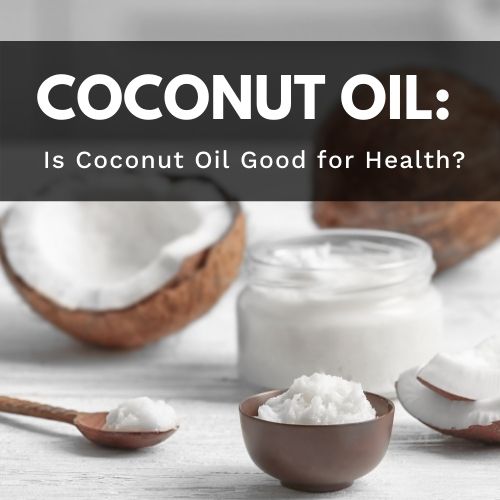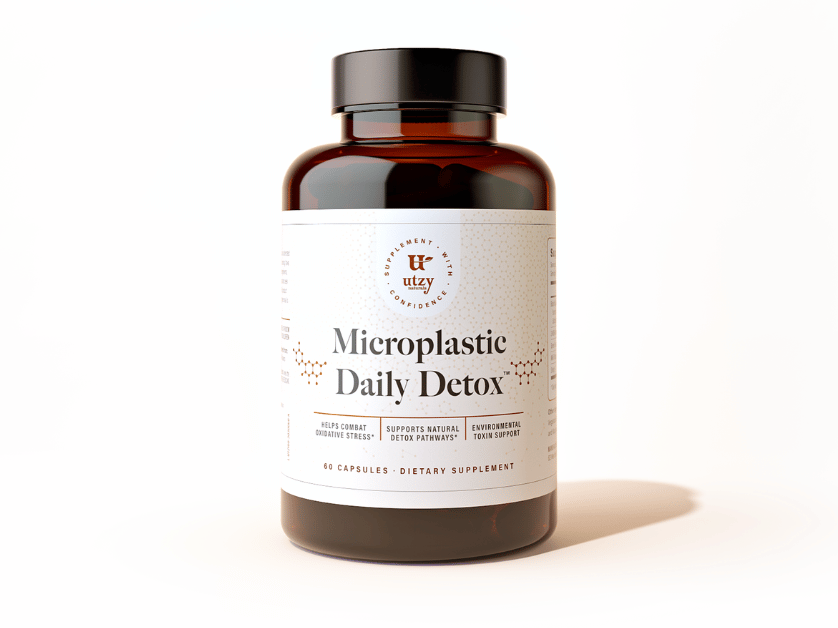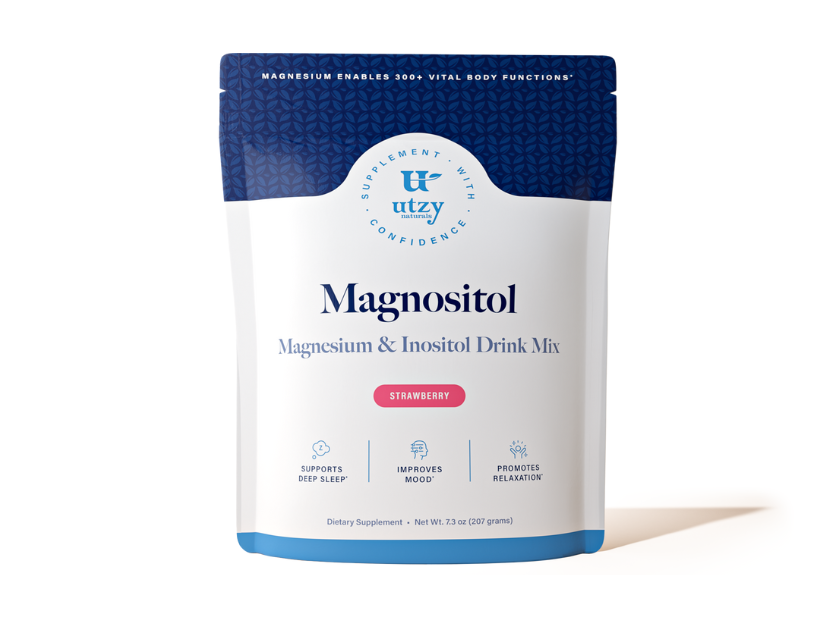shop
learn

Healthy or Hype: Coconut Oil
January 30, 2025 4 min read
Coconut oil has made quite a buzz in the health and wellness world recently.
Some hail it as the ultimate superfood capable of curing many health conditions.
Others claim that it has no place in human consumption.
Now before we either toss our coconuts in the trash bin or raise capital for our new coconut farm start-up, let's examine the evidence that currently exists.

What Makes Coconut Oil So Special?
Most of the fat in our food comes from long chains of fat. These are called long-chain triglycerides, or LCTs for short.
Coconut oil, however, has a high ratio of medium-chain triglycerides (MCTs).
These shorter fatty acid chains behave differently when consumed and are what give coconut oil some of its unique health benefits, which we’ll dig into below…
1. Quick Energy for the Body and Brain
Regular, long chain fats need to be slowly broken apart before they can be absorbed in the intestines. This process takes time and is why meals that have plenty of fat slow our digestion and typically leave us feeling full or satisfied for a longer period of time.
In contrast, medium-chain triglycerides are quickly and easily absorbed by the body. MCTs don't require any digestion so they rapidly pass through the intestine wall and enter the blood.
MCTs travel straight to the liver where they can be used as energy or (during periods of fasting) provide direct energy to the brain in the form of ketones (1).
These fast-acting properties make coconut oil a great source for a quick cellular energy boost.
2. May Raise HDL Cholesterol
One study found that coconut oil may help increase HDL cholesterol (2).
HDL cholesterol is "good" cholesterol and plays a role in regulating the levels of other fats in our blood such as triglycerides and LDL cholesterol (the "bad" cholesterol).
When levels of LDLs and triglycerides remain elevated, they may accumulate as plaques in the blood vessels. This build-up of plaque increases the risk for health conditions like high blood pressure and strokes.
HDL cholesterol can carry LDL cholesterol away from the arteries and remove it from the bloodstream. This means that coconut oil could prove beneficial to those with high LDL or triglyceride levels, both of which are risk factors of heart disease.
3. May Promote Weight Loss
Coconut oil may prove to aid with weight loss.
In one study, 2 Tbsp of coconut oil per day helped women lose weight over a twelve week period (3).
Similarly, men were able to lose weight in only four weeks with the same daily dose of coconut oil (4).
Participants in both studies lost fat from the abdominal regions. This is especially good news as fat that is stored in the abdomen specifically increases the risk factors for developing many different chronic diseases.
Now, it is important to remember that weight loss occurs from being in a caloric deficit, meaning that less energy is consumed than what the body spends each day.
Simply consuming coconut oil does not necessarily mean that one will be in a caloric deficit and lose weight. While it remains unclear what specific role coconut oil played in the loss of weight during these studies, it did appear to be a contributing factor to those results.
With the above health benefits in mind, the real question remains: how can I best incorporate this tropical goodness into my diet?
Types of Coconut Oil and How to Use
Coconut oil typically comes in two types: refined or virgin/extra virgin.
Refined Coconut oil
This type of coconut oil is processed in order to have a milder flavor and a slightly higher smoke point (400°F)
Smoke point is the temperature at which the fat chains "burn" and break down, often creating free radicals which are damaging to our cells.
With a milder flavor and a higher smoke point, refined oil is often a favorite for frying or sautéing.
Virgin Coconut Oil
This type of oil has a much stronger coconut flavor and a lower smoke point (350°F). This type is commonly used to add "tropical notes" to baked goods, or it can be enjoyed directly off the spoon (my favorite)!
But is there a difference between the two types regarding health benefits? Great question!
While there is very little difference in overall nutrient profiles between refined and virgin oils, one study found that virgin oils do appear to have a slightly higher antioxidant content than their refined cousins (5).
Antioxidants can assist our bodies in neutralizing the damaging free radicals mentioned above.
The Take-Away
While most of us can't spend as much time on the beach as we'd like, we can bring the essence of the tropics to us with a jar of coconut oil.
With its unique MCT composition and emerging health benefits, coconut oil can make a tasty addition to the variety and diversity of our diets.

Leave a comment
Comments will be approved before showing up.
Also in Health
Subscribe
Sign up to get the latest on sales, new releases and more …
Join the Utzy Naturals Club!
Sign up and get the latest on sales, new releases, and more...







